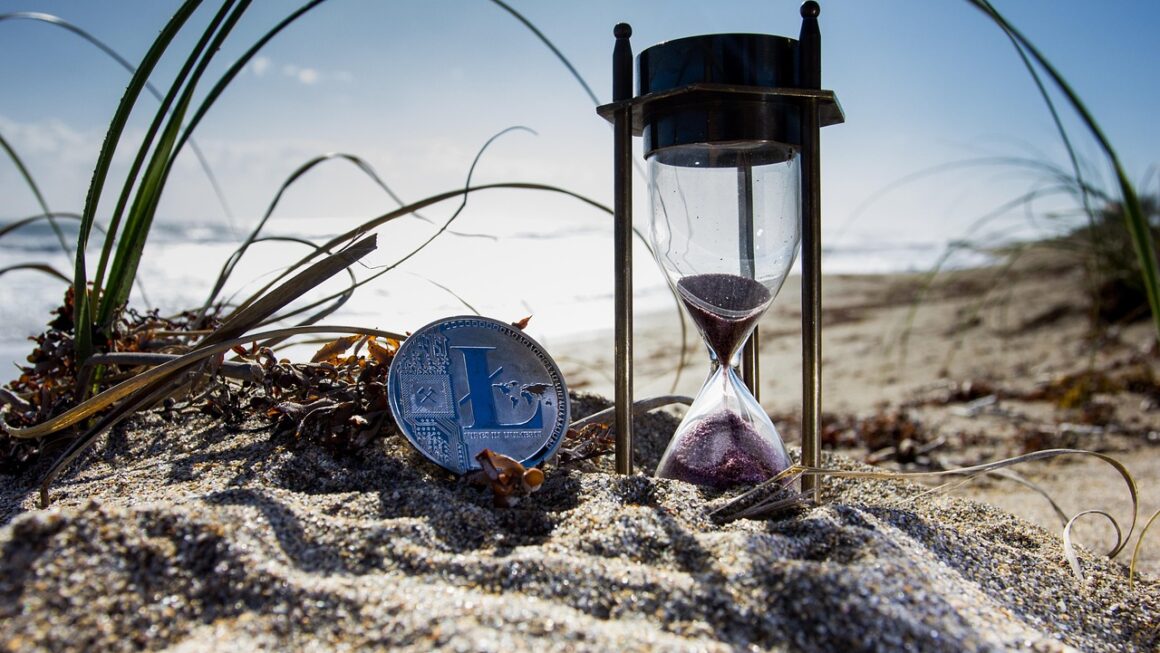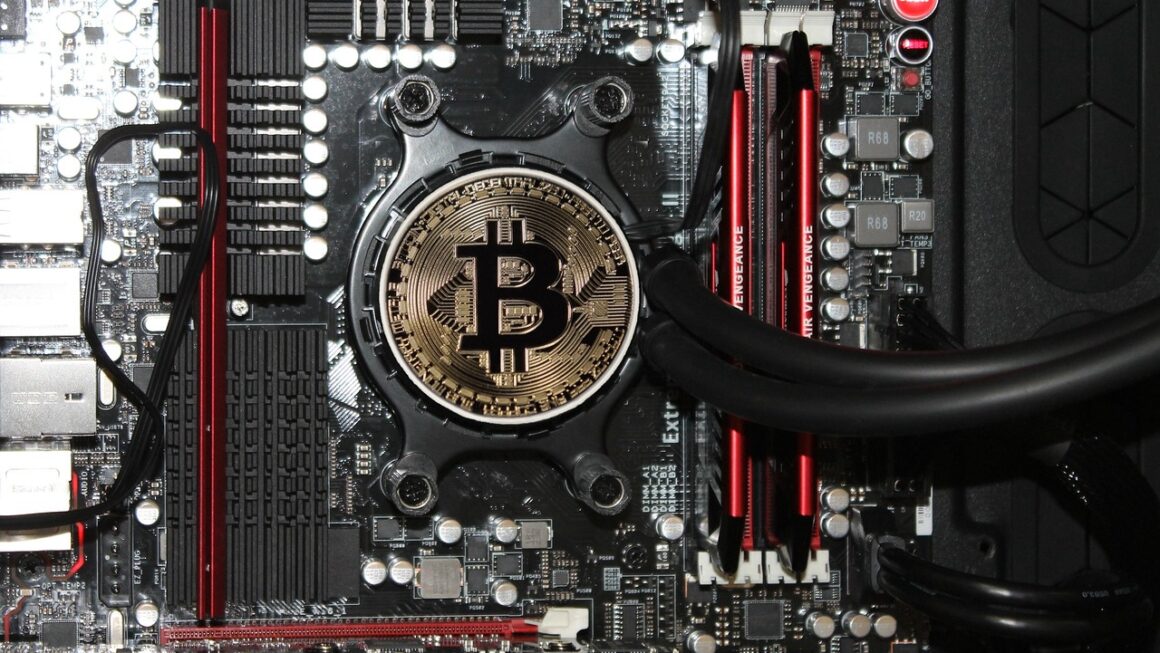Zero-Knowledge Rollups (zk-Rollups) are revolutionizing the Ethereum scaling landscape, promising faster transaction speeds and lower costs without compromising security. As Ethereum adoption surges, zk-Rollups are emerging as a leading Layer-2 solution, offering a glimpse into a more scalable and efficient blockchain future. This blog post will delve into the intricacies of zk-Rollups, exploring their architecture, benefits, use cases, and the overall impact they are having on the Web3 ecosystem.
Understanding Layer-2 Scaling Solutions
The Need for Scalability
Ethereum, despite its widespread adoption, faces significant scalability challenges. High gas fees and slow transaction speeds often hinder everyday use, particularly for smaller transactions. Layer-2 scaling solutions like zk-Rollups are designed to address these issues by processing transactions off the main Ethereum chain (Layer-1) while inheriting its security.
How Layer-2 Works
Layer-2 solutions operate as separate networks built on top of Ethereum. Transactions are bundled and processed on this secondary layer, and only aggregated data is periodically submitted to the main Ethereum chain. This significantly reduces the burden on Layer-1, leading to faster and cheaper transactions for users.
What are zk-Rollups?
Core Principles of zk-Rollups
zk-Rollups, or Zero-Knowledge Rollups, are a type of Layer-2 scaling solution that leverages zero-knowledge proofs to validate transactions off-chain. Here’s a breakdown of their core principles:
- Off-Chain Computation: Transactions are executed outside the Ethereum mainnet, significantly reducing congestion.
- Zero-Knowledge Proofs: zk-Rollups use zero-knowledge succinct non-interactive arguments of knowledge (zk-SNARKs) or zero-knowledge transparent argument of knowledge (zk-STARKs) to prove the validity of these off-chain transactions without revealing the transaction data itself. This enhances both privacy and security.
- On-Chain Data Availability: While computation occurs off-chain, transaction data (or a compressed version) is published on the Ethereum mainnet. This ensures data availability, which is crucial for the rollup’s security and censorship resistance. Anyone can reconstruct the rollup’s state using this data.
- Cryptographic Security: The security of zk-Rollups is mathematically guaranteed by the zero-knowledge proofs. If the proof is valid, the state transition is valid.
zk-SNARKs vs. zk-STARKs
Both zk-SNARKs and zk-STARKs are types of zero-knowledge proofs, but they differ in their construction and properties:
- zk-SNARKs (Zero-Knowledge Succinct Non-Interactive Argument of Knowledge): These are widely used but require a trusted setup, meaning a secret key must be generated during the initial setup of the rollup. If this key is compromised, the rollup’s security could be at risk. They typically generate smaller proof sizes, leading to lower on-chain costs for verification.
- zk-STARKs (Zero-Knowledge Scalable Transparent Argument of Knowledge): These offer greater security because they don’t require a trusted setup. Instead, they rely on publicly verifiable randomness. However, they generally produce larger proof sizes, which can increase on-chain costs.
How zk-Rollups Work: A Step-by-Step Example
Imagine a user wants to send ETH using a zk-Rollup:
- Transaction Submission: The user submits a transaction to the zk-Rollup operator (also called a sequencer).
- Batching Transactions: The operator batches multiple transactions together.
- Off-Chain Execution: The operator executes these transactions off-chain, updating the zk-Rollup’s state.
- Proof Generation: The operator generates a zero-knowledge proof (either zk-SNARK or zk-STARK) that proves the validity of all the transactions in the batch. This proof is a succinct cryptographic proof that anyone can verify.
- On-Chain Verification and State Update: The operator submits the proof and a compressed state root (representing the new state of the rollup) to the Ethereum mainnet. A smart contract on Ethereum verifies the proof. If the proof is valid, the smart contract updates the zk-Rollup’s state root on the mainnet.
- Transaction Finality: Once the proof is verified on the mainnet, the transactions are considered finalized.
Benefits of Using zk-Rollups
Scalability and Throughput
zk-Rollups significantly increase transaction throughput compared to Ethereum mainnet:
- High TPS: zk-Rollups can process thousands of transactions per second (TPS), far exceeding Ethereum’s current capacity.
- Reduced Gas Fees: By batching transactions and executing them off-chain, zk-Rollups substantially lower gas fees for users. This makes them accessible for smaller transactions that would otherwise be prohibitively expensive on Ethereum mainnet.
- Improved User Experience: Faster transaction speeds and lower fees result in a smoother and more user-friendly experience for decentralized applications (dApps).
Security and Privacy
zk-Rollups inherit the security of Ethereum while also offering enhanced privacy features:
- Ethereum Security: Because transaction data is anchored to the Ethereum mainnet, zk-Rollups benefit from Ethereum’s robust security model.
- Cryptographic Security: The validity of transactions is mathematically guaranteed by zero-knowledge proofs. Any attempt to forge a proof or tamper with the state would be detected.
- Privacy Enhancements: While data availability requires posting transaction data (or a compressed version) on-chain, the use of zero-knowledge proofs can provide varying degrees of privacy. Certain constructions allow for shielding sender and receiver addresses.
Composability and Compatibility
zk-Rollups are designed to be compatible with the Ethereum ecosystem:
- EVM Compatibility: Some zk-Rollups are EVM (Ethereum Virtual Machine) compatible, meaning developers can easily migrate their existing Ethereum dApps to the zk-Rollup with minimal code changes. This allows for seamless integration with the broader Ethereum ecosystem.
- Interoperability: zk-Rollups are designed to interact with other Layer-2 solutions and the Ethereum mainnet, facilitating the transfer of assets and data between different networks.
Use Cases for zk-Rollups
Decentralized Exchanges (DEXs)
zk-Rollups are ideal for DEXs, which require fast and cheap transactions for trading:
- High-Frequency Trading: The speed and low fees of zk-Rollups enable high-frequency trading strategies that are impractical on Ethereum mainnet.
- Order Book DEXs: zk-Rollups can support order book DEXs, which require real-time order matching and execution.
- Arbitrage Opportunities: Traders can take advantage of arbitrage opportunities across different exchanges more efficiently.
Payments and Transfers
zk-Rollups make micropayments and cross-border transfers more feasible:
- Micropayments: The low fees enable micropayments for content creators, online services, and other applications.
- Cross-Border Transfers: zk-Rollups can facilitate faster and cheaper cross-border transfers, reducing reliance on traditional banking systems.
- Gaming: In-game transactions and asset trading become more accessible and affordable.
Data Privacy and Identity Management
The zero-knowledge properties of zk-Rollups are valuable for privacy-sensitive applications:
- Private Transactions: zk-Rollups can be used to create private transactions where the sender, receiver, and amount are hidden.
- Identity Management: zk-Rollups can enable secure and privacy-preserving identity verification and authentication.
- Voting: zk-Rollups can be used to build secure and anonymous voting systems.
Challenges and Future Developments
Technological Complexity
Developing and implementing zk-Rollups is technically complex:
- Advanced Cryptography: Requires expertise in advanced cryptography and zero-knowledge proof systems.
- Computational Overhead: Generating and verifying zero-knowledge proofs can be computationally intensive, although hardware acceleration is helping to address this.
- EVM Compatibility: Achieving full EVM compatibility while maintaining performance and security is a significant challenge.
Adoption and Ecosystem Growth
Wider adoption of zk-Rollups depends on several factors:
- Developer Tooling: More robust developer tools and documentation are needed to encourage wider adoption.
- User Education: Users need to be educated about the benefits and functionalities of zk-Rollups.
- Infrastructure Development: The development of robust infrastructure, such as bridges and wallets that support zk-Rollups, is crucial.
The Future of zk-Rollups
zk-Rollups are continuously evolving, with ongoing research and development focused on:
- Improving Proof Generation: Efforts are underway to reduce the computational cost of generating zero-knowledge proofs.
- Enhancing Privacy: Research continues on enhancing the privacy features of zk-Rollups.
- Scalability Improvements: Innovations are being explored to further increase the scalability of zk-Rollups.
Conclusion
zk-Rollups represent a significant advancement in Ethereum scaling technology, offering a compelling combination of scalability, security, and privacy. While challenges remain in terms of complexity and adoption, the potential of zk-Rollups to transform the blockchain landscape is undeniable. As the Ethereum ecosystem continues to evolve, zk-Rollups are poised to play a crucial role in unlocking the full potential of decentralized applications and bringing the benefits of Web3 to a wider audience. By understanding the core principles, benefits, and use cases of zk-Rollups, developers, users, and investors can better navigate and contribute to the future of this exciting technology.
Read our previous article: Beyond Gaming: VRs Unexpected Impact On Empathy
For more details, see Investopedia on Cryptocurrency.




